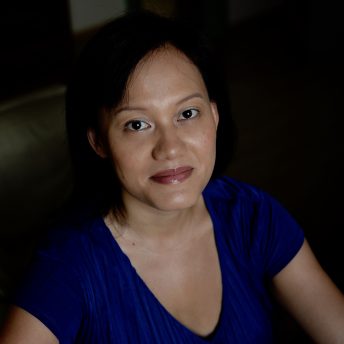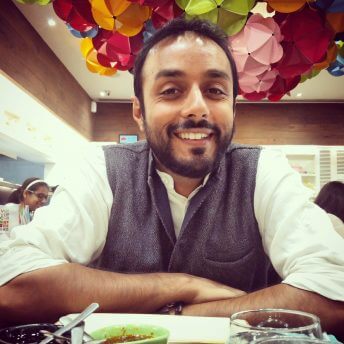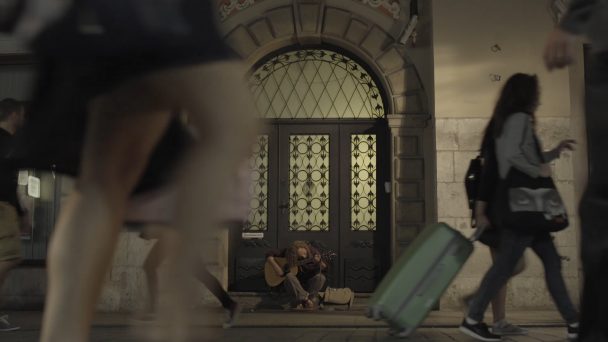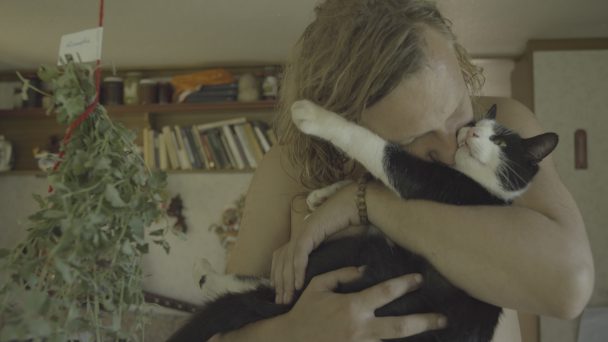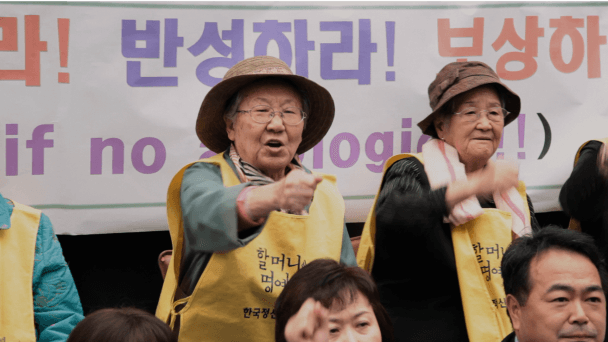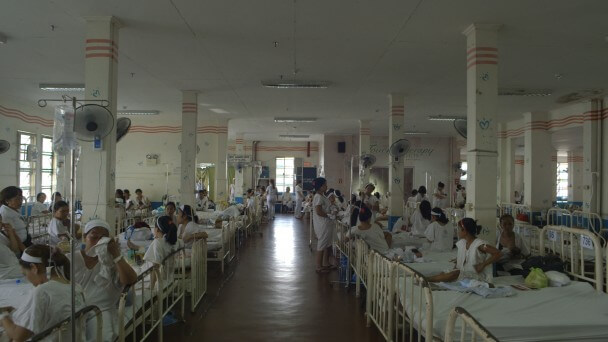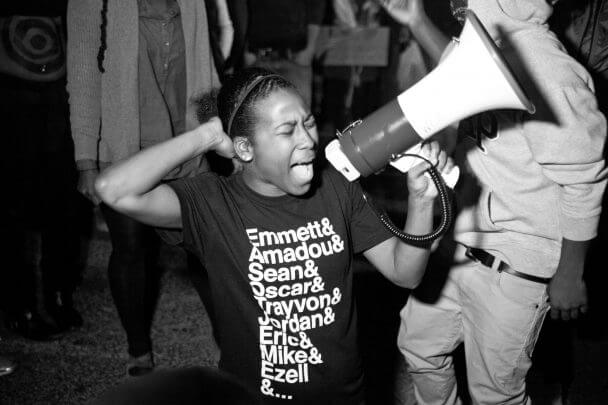Announcing our 2018 Accelerator Lab grantees!

Chicken & Egg Pictures is proud to announce the third cohort of our Accelerator Lab for first- and second-time filmmakers!
The Accelerator Lab is focused on identifying and supporting women nonfiction directors working on their first or second feature-length documentary. This program brings together ten projects helmed by first- or second-time directors, with a special focus on underrepresented voices.
“Community-building is key to this program,” says Chicken & Egg Pictures Program Director Lucila Moctezuma. “While the Accelerator Lab for first- and second-time filmmakers certainly helps women filmmakers to enter the industry pipeline, it also provides them with a community of support that helps them to stay in the pipeline. The reality of being a film director is that it can often feel daunting and isolating. By explicitly encouraging peer-to-peer mentorship among our cohort, we provide emerging filmmakers with a chance to bond with and learn from one another, to help one another carve a space for themselves in the industry, and to equip them with the strength of a community they can rely on throughout their careers.”
Synopses of the 2018 Accelerator Lab grantees’ compelling projects are below, and you can get to know the directors by viewing the linked project pages. Grantees will work on these films during their program year.
Our next open call for the Accelerator Lab will take place in the spring of 2018. For additional information on the program, including application criteria, please visit our Programs page.
Congratulations to our newest grantees, and wishing you a fantastic year!

A Cops and Robbers Story, directed by Ilinca Calugareanu (ROMANIA / UK)
Corey Pegues, one of the highest ranking black executives in the NYPD, reveals a few months after retirement that before joining the NYPD he worked the streets dealing crack cocaine for one of the most notorious drug gangs in the US, the Supreme Team. To many he is either a perp in cop costume or a criminal turned hero. But who is the real Corey Pegues?

People’s Hospital, directed by Siyi Chen (CHINA / US)
As the Chinese society criticizes dysfunctional hospitals, a doctor’s daughter revisits the small-town hospital where she grew up—this time with a camera, in the middle of a chaotic ER.
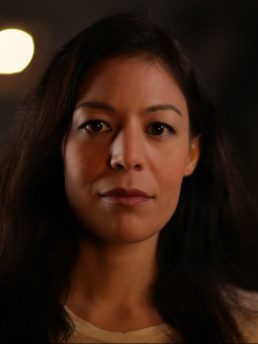
Enemies of the State, directed by Sonia Kennebeck (MALAYSIA / GERMANY / US)
An average American family becomes entangled in a bizarre web of espionage and corporate secrets when their hacker son is targeted by the U.S. government.
The Youth, directed by Eunice Lau (SINGAPORE / US) and Arthur Nazaryan (US)
The Youth is an unflinching look at the forces that drive one to adopt an extreme ideology. Through the eyes of a father who seeks to understand how his son is radicalized by the propaganda of the Islamic State Army, The Youth reveals how a Muslim American family is affected by the geopolitics and polemics that fuel the resurgence of reactionary and right-wing political movements. Through this intimate lens on the Somali community in Minnesota, The Youth explores the racism and prejudices against immigrants, the rise of radical Islam, and what it means to be Muslim in contemporary America.
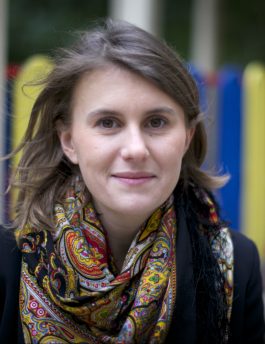
Number 387, directed by Madeleine Leroyer (FRANCE)
This is the story of a Greek physician who collects pendants and bracelets.
This is the story of an Italian woman who has been fighting for 15 years to “make bodies talk.”
This is the story of those who watch over the forgotten migrants.
Since the beginning of 2016, 3,649 migrants have died while attempting to reach Europe by sea. 3,649 names, the vast majority of which have been diluted in the deep blue waters of the Mediterranean.
What happens to the dead? Who identifies them?
What do the mothers, the brothers do to try to find their missing loved ones?
For years, medical examiners have been trying to give back a name, dignity, a memory to these forgotten souls.
This film tells their story.
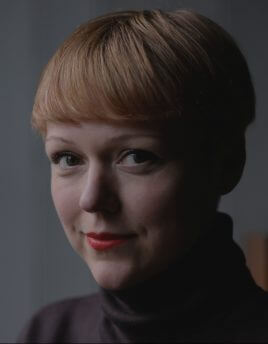
Electric Malady, directed by Marie Lidén (SWEDEN / UK)
Director Marie Lidén grew up with a mother who suffered from an illness that the world did not recognize—Electrosensitivity. Years later, in a technologically advanced world, Marie gives a poignant account of the lives of two electrosensitives: William, a 41-year-old Swedish man, and Tyler, a 13-year-old Canadian boy. Using Marie’s own family story as a thread, the film explores William and Tyler’s isolated worlds and their families’ unrelenting commitment to help their children.
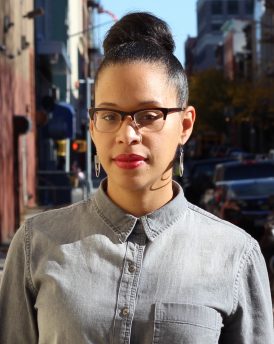
Through The Night, directed by Loira Limbal (US)
To make ends meet, Americans are working longer hours across multiple jobs. This modern reality of non-stop work has resulted in an unexpected phenomenon: the flourishing of 24-hour daycare centers. Through the Night is a verité documentary that explores the personal cost of our modern economy through the stories of two working mothers and a child care provider, whose lives intersect at a 24-hour daycare center in New Rochelle, NY.
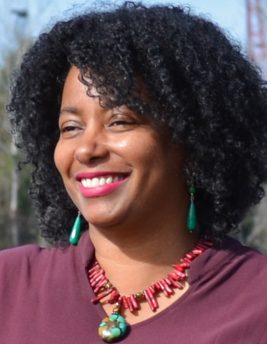
Always in Season, directed by Jacqueline Olive (US)
As the trauma of a century of lynching African Americans bleeds into the present, Always in Season follows relatives of the perpetrators and victims in communities across the country who’re seeking justice and reconciliation in the midst of racial profiling and police shootings. In Bladenboro, NC, the film connects historic racial terrorism to racial violence today with the story of Claudia Lacy who grieves as she fights to get an FBI investigation opened into the death of her seventeen-year-old son, Lennon Lacy, found hanging from a swing set on August 29, 2014. Claudia, like many others, believes Lennon was lynched.
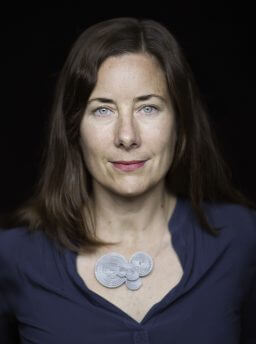
Reentry (working title), directed by Jennifer Redfearn (US)
Women are now the fastest growing population in the U.S. criminal justice system, increasing at nearly double the rate of men. The majority of women going into prison are serving time for drug related charges. This immersive, character-driven film follows three women—who are part of a new reentry program in Cleveland, Ohio—as they prepare to leave prison, reunite with their children, and find jobs after serving time for drug related charges.
Writing With Fire, directed by Rintu Thomas and Sushmit Ghosh (INDIA)
In a cluttered news landscape dominated by men, emerges India’s only newspaper run by Dalit women. Armed with smartphones, Chief Reporter Meera and her journalists break traditions, be it on the frontlines of India’s biggest issues or within the confines of their homes, redefining what it means to be powerful.
Chicken & Egg Pictures nominees for the Spirit Awards!
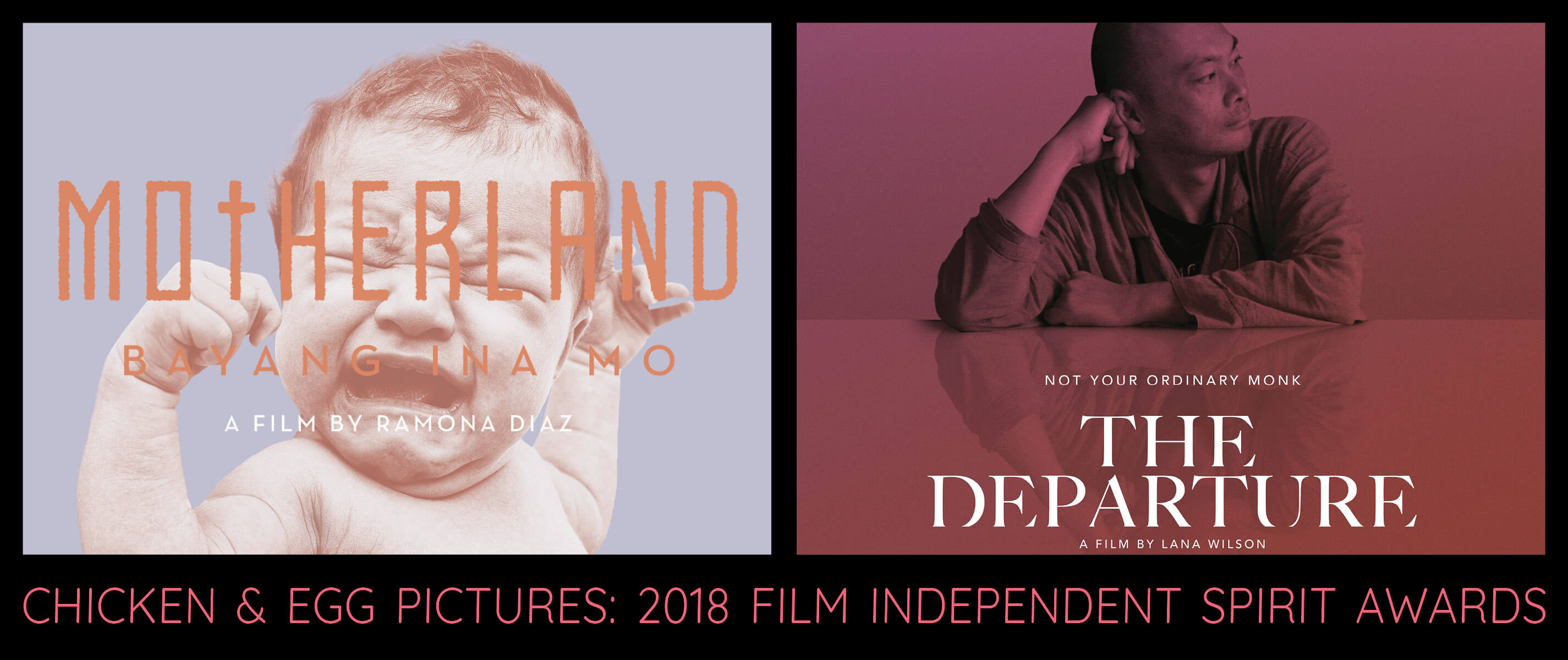
Two Nest-supported films, Motherland (directed by Ramona Diaz) and The Departure (directed by Lana Wilson), have been nominated for Best Documentary at the 2018 Film Independent Spirit Awards! Congratulations and best of luck, Lana and Ramona!
Motherland, directed by Ramona Diaz
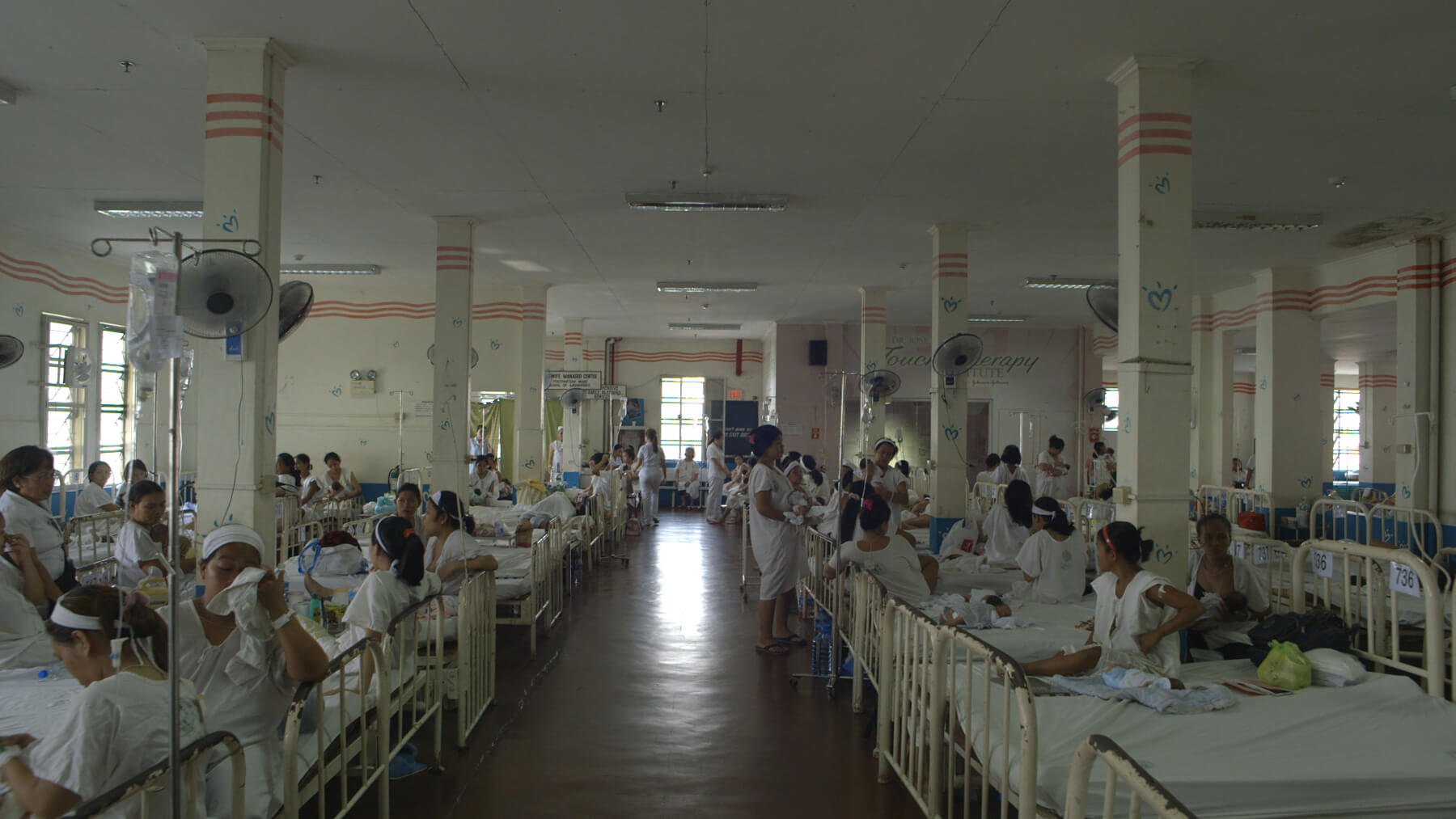
One of the world’s poorest and most populous countries, the Philippines, struggles with reproductive health policy—both in the legislature where laws are in debate, and in a hospital with the busiest maternity ward on the planet.
The Departure, directed by Lana Wilson
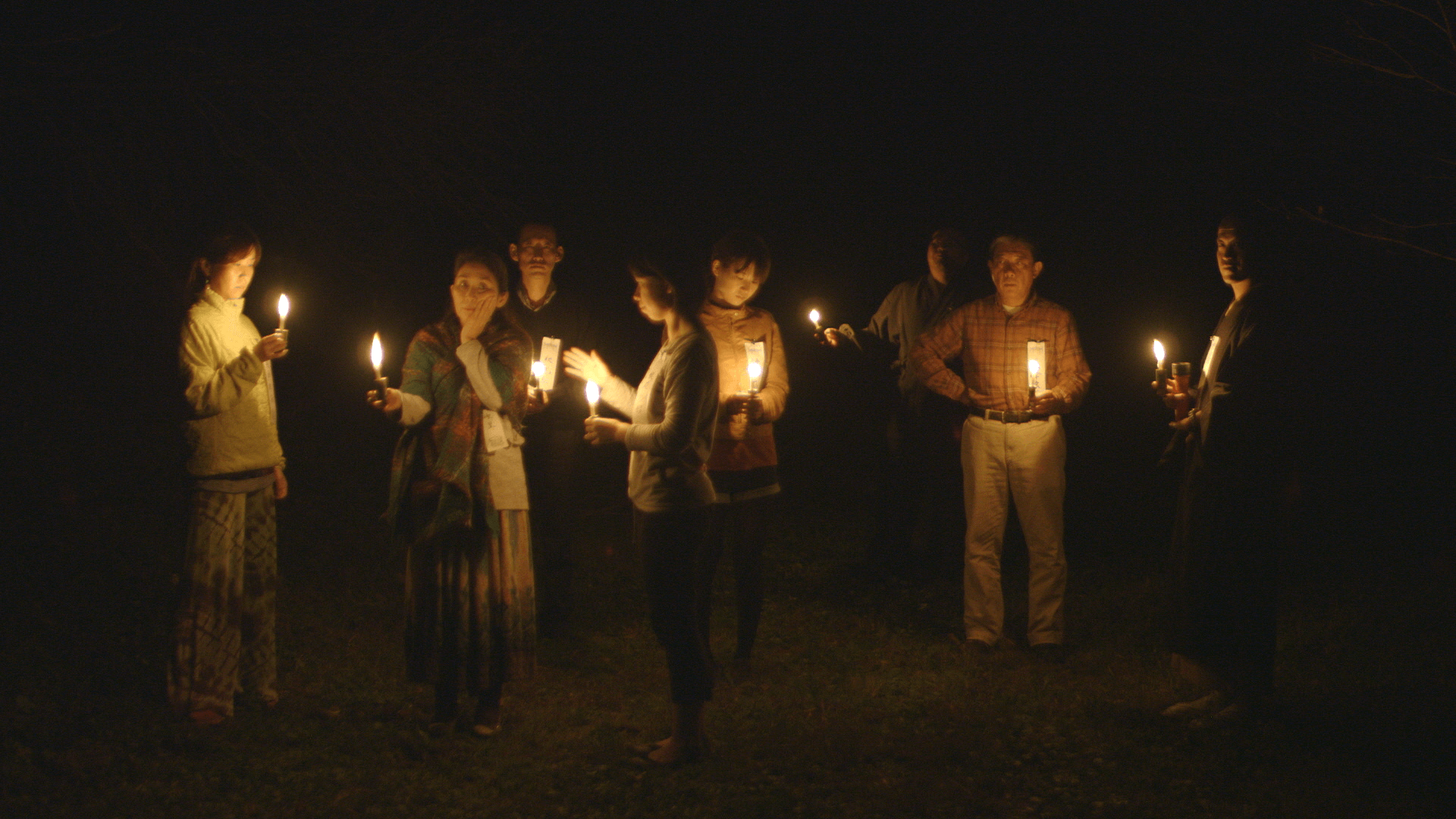
Ittetsu Nemoto, a former punk-turned-Buddhist-priest in Japan, has made a career out of helping suicidal people find reasons to live. But this work has come increasingly at the cost of his own family and health, as he refuses to draw lines between those he counsels and himself. The Departure captures Nemoto at a crossroads, when his growing self-destructive tendencies lead him to confront the same question his patients ask him: what makes life worth living?
If you are registered to vote in the Film Independent Spirit Awards, remember to cast your vote by Friday, February 16.
Chicken & Egg Pictures Oscar Nominees!
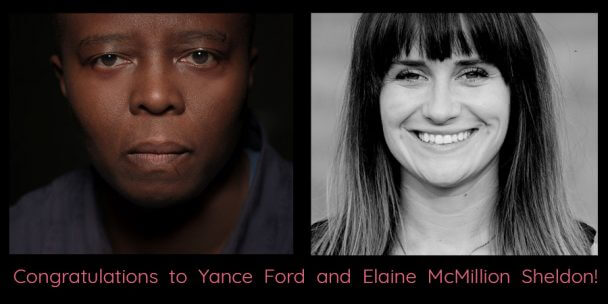
Two Nest-supported filmmakers’ films have been nominated for the 90th Academy Awards®, and we could not be more excited!
First-time filmmaker Yance Ford’s Nest-supported film Strong Island is nominated for Best Documentary (Feature).
Set in the suburbs of the black middle class, Strong Island seeks to uncover how—in the year of the Rodney King trial and the Los Angeles riots—the murder of the filmmaker’s older brother went unpunished. The film is an unflinching look at homicide, racial injustice, and the corrosive impact of grief over time.
2016 Breakthrough Filmmaker Award Recipient Elaine McMillion Sheldon‘s film Heroin(e) is nominated for Documentary (Short Subject).
“Once a bustling industrial town, Huntington, West Virginia has become the epicenter of America’s modern opioid epidemic, with an overdose rate 10 times the national average. This flood of heroin now threatens this Appalachian city with a cycle of generational addiction, lawlessness, and poverty. But within this distressed landscape, Peabody Award-winning filmmaker Elaine McMillion Sheldon (Hollow) shows a different side of the fight against drugs—one of hope.”*
Many joyful congratulations, and best of luck, to Yance and Elaine!
Check out a full list of all Oscar nominees here. We will be watching the 90th Academy Awards® on Sunday, March 4, 2018, at 8pm EST. Join us as we tune in!
*Synopsis from the Heroin(e) webpage.
“What interests me is how people face everydayness”: Meet Zofia Pregowska, 2017 Accelerator Lab Grantee
Part Three of a series of blog posts from Chicken & Egg Pictures’ 2017 Accelerator Lab grantees. This post is an interview with Zofia Pregowska, Chicken & Egg 2017 Accelerator Lab Participant and director of People I Know.
Your documentary debut and short film, “Invisible,” is a portrait of Krystyna, an elderly, almost blind poet, as she prepares for a performance. It was an official selection at more than twenty five film festivals. Why do you think such a specific story has resonated with so many people?
Krystyna is an incredibly inspiring person. Though she is closed in her little apartment, she is able to wander through worlds in her imagination. At the same time, she is extremely disciplined and hardworking. She has taught me that we ourselves give value to what we do. The film is about the power of mind and imagination–but not daydreaming. Krystyna is not waiting to be saved and does not dream about the impossible. She takes her own life in her own hands, accepting it the way it is. This doesn’t mean that she accepts that she has lost her sight and hearing–but she never allows herself to be held back by her age or her disability. And she has a great sense of humor. She faces the challenges facing each of us, the gray everydayness, and she conquers them with her humor, love for life, and poetry.
A beautiful thing about “Invisible” is how quiet the audience feels, like we’re seeing something secret, something special. Your work-in-progress, “People I Know,” tells the story of Nathalie and Michael, a young married couple living in a trailer, he, a street musician, she, an oncology nurse. What compels you, as a filmmaker, to tell such intimate stories?
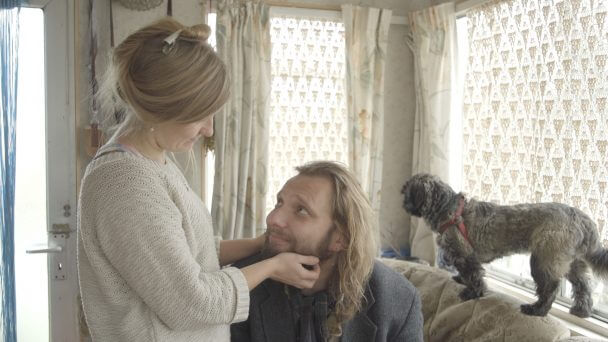
What compels me is the everyday quest of my characters to live a meaningful life. 90-year-old Krystyna has found her path; Michael and Nathalie, in their thirties, are at a crossroads looking for their way. What interests me is how people face everydayness. And filming people in their home is like being backstage in the theater of everyday life. What happens outside the home is a theater of social roles we play, for better or for worse. And hopefully it is compelling to the audience because there is nothing more universal than everyday life struggles. They may take different shapes in different places, but marriage, career choices, illness, aging, everyday fears and hopes are things we all can easily relate to and [at the] same time we easily miss them in everyday life. So what I try to do is take a close look at that common reality which is often invisible, to remind myself how extraordinary, ridiculously funny, and deeply tragic it is.
How have you grown as a filmmaker since “Invisible” (it being your graduate film)? How have you been adjusting to and preparing for your first feature-length documentary?
The popularity of “Invisible” gave me a lot as I had the opportunity to travel to many international film festivals which was both an amazing inspiration and [at the] same time a reality check. Therefore, I had the opportunity to meet a great number of wonderful filmmakers, short films debutants like me as well as established ones who could share their experience. Also, my industry knowledge was practically nonexistent before that, so in that sense it was a big step for me. I also had a chance to take part in the IDFA Academy and Uniondocs Summer Intensive in New York which was a great, enriching experience. Then, I also discovered Chicken and Egg. It would never have been possible without the Polish Film Institute’s support which made me able to travel. In the meantime I produced the children’s historical documentary short “A Brave Bunch,” which was also a great lesson for me as it was made in a completely different style of work and included child actors and around 25 crew members.
So in that [sense] I evolved a lot, but [at the] same time it doesn’t mean making your next film is any easier than the last one. I doubt you can prepare for this kind of documentary, as you have to be open to the unexpected. It’s more like an experience of falling through the ice. Before “People I Know” I was preparing for a completely different film, the kind where you have lots more control. And then I received the call from Michael to visit him and his wife in a trailer. Once we went there with my cinematographer Tom Stankiewicz, we forgot about all other plans and we kept shooting for the last two years.
“Invisible” captures Krystyna and her poetry using a fly-on-the-wall fashion. Will “People I Know” operate similarly stylistically?
Yes, “People I Know” will be stylistically similar in terms of creating the “feeling of being there.” I like to leave the audience alone with my characters.
Zofia Pregowska is a documentary filmmaker from Warsaw, Poland. She graduated from Warsaw Film School for film directing and her documentary debut, Invisible, premiered at IDFA and went on to win 19 awards including the Short Documentary Jury Award at the New Orleans International Film Festival in 2014. In 2015, she made her production debut with A Brave Bunch: Uprising Through Children’s Eyes. She operates her own production company, Prego Media – Handmade Films, where she works as a director and producer.
Post by Morgan Lee Hulquist, 2017 Summer Communications Intern.
Meet Hana Mire: the Filmmaker Telling the Story of Somalia’s National Women’s Basketball Team
Part Two of a series of blog posts from Chicken & Egg Pictures’ 2017 Accelerator Lab grantees. This post is an interview with Hana Mire, Chicken & Egg 2017 Accelerator Lab Participant, 2016 Diversity Initiative Fellow, and director of Rajada Dalka/Nation’s Hope.
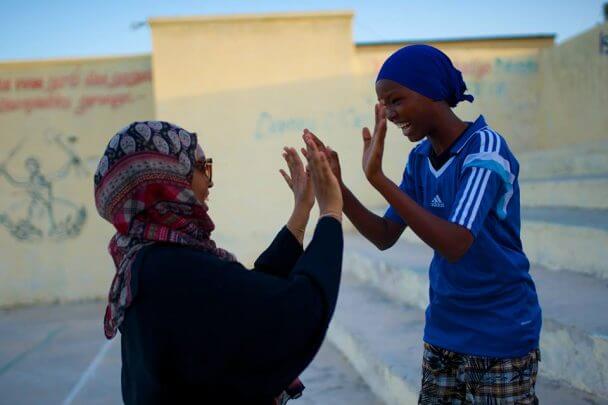
Tell us about your film. What stage is it currently in?
The film is about the Somalia women’s national basketball team. We’re following two young girls who were raised in Mogadishu and play for the team as, every day, they receive death threats from the terrorist organization, Al Shabaab, telling them to stop playing. At the same time, we’re following two older generation women who played basketball in Somalia before the civil war, twenty-seven years ago, who are training the girls for the Pan Arab Games.
We’re in production. The ending of the film will be the Pan Arab Games in February. Then we’ll move to the post-production.
How did you discover the female basketball players of Mogadishu and then decide they would be the subjects of your first feature film?
I used to work in a bank as a customer service agent. One day, one of my colleagues, who knew I was Somali, was reading an article. She came to me and said, Hana, you have to check out this story. And I read this story about these older generation players training these young girls in Somalia, and I was so inspired.
I did my research and reached out to the team in Somalia. I emailed them, explained who I was, and told them I was very interested in coming to Somalia to make a film. They were very supportive.
One month later, I came to Somalia with a skeleton-crew to see the girls, meet the coaches, and start the film.
Being a Somali woman who was born and raised in the U.A.E., what has been your experience being in Somalia to film Rajada Dalka?
I wanted to find Somalia through my eyes. I had never been because my parents left Somalia forty years ago and came to the United Arab Emirates.
The stories my mom told me were so different from what the media told me. Growing up in the U.A.E., every time I turned on the TV and people were talking about Somalia, they were showing the poverty and filming the war. I was never turning on the TV and seeing something positive about my country. I wanted to come closer to this culture.
When I went to Somalia to meet the team and film them, it was eye-opening for me. It was my first time in Somalia, and it was such an inspirational trip. Everything I was seeing, I was seeing for the first time. All the colors—all the beautiful colors that the women would wear! I was so in love with the people, the dances, the clothes, the poetry, the city, the story, and everything! And I felt so welcome. People really opened their doors to me. One day, I was waiting for my driver and people kept coming up to me saying, do you need anything? Do you need a ride? Are you lost?
I thought, this is something you don’t see. This is not something being shown to anyone. You see in the media that we are aggressive, that we are fighting, that we are dying. That’s all I had ever heard from people—Somali people are dying because they have no water, no access to food. But it’s not the whole country that’s in that position. I’m not denying that there is poverty. Everywhere, there’s poverty. But my film is going to show how these girls live. They’re struggling, how any other person is struggling. Like anyone living in New York City and working and living. Paying their rent, providing, and paying the bills. It’s the same life, I would say. These girls are happy in their home. That’s what I want to show. They don’t have to be in the US! They don’t have to be in Europe to be happy!
The only thing they need is to have security, to have a secure country that can support them.
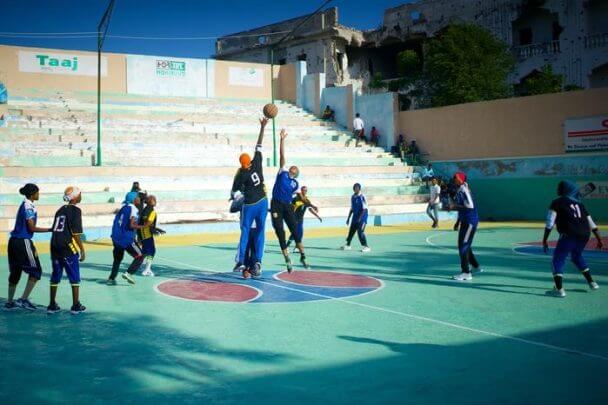
How can we, as an audience, relate to these women who risk everything to play the sport they love?
I think the film will inspire people who are going through similar conditions, or any conditions with an obstacle in front of them. You would not expect someone who receives death threats on a daily basis to continue playing basketball!
If someone told me, I’m going to kill you unless you stop making films, I would stop and think about me. We all get to live just one time in this world. We have to achieve what we really want and what we believe in.
And that’s why I relate to these girls. Initially, I had to hide the fact that I was studying filmmaking from my family. Like the girls in Mogadishu had to hide from their families that they were risking their lives playing basketball.
Are they supportive now?
They changed their minds; my whole family changed their minds. Because they saw that I’m very persistent when I find a story that is really important to me and a story that really matters. And this story matters.
They also got pretty encouraged when they found out I had been funded by organizations all the way in the US. They were like, okay, so she’s being supported internationally; this filmmaking thing is real, not just to her. So, they left me with that.
Glad we could help!
United Arab Emirates-based independent Somali filmmaker Hana Mire is the director and producer of the forthcoming documentary and her feature directorial debut, Rajada Dalka. She has taken film production courses at New York Film Academy in Abu Dhabi, has directed and produced short documentaries, and in 2013, she won an award at the Abu Dhabi Film Festival for her mini-doc, Silent Art. Last year, she was a Documentary Intensive Fellow at UnionDocs and a Diversity Fellows Initiative filmmaker.
Post by Morgan Hulquist, Summer 2017 Chicken & Egg Pictures Communications Intern.
Congratulations to our Sheffield Doc/Fest 2017 Winners!
The Sheffield Doc/Fest 2017 just wrapped and we are proud to announce the Chicken & Egg-supported filmmakers who were awarded at Sheffield Doc/Fest this year: Yance Ford for Strong Island, Jennifer Brea for Unrest and Unrest (VR)*, and Violeta Ayala for The Fight*.
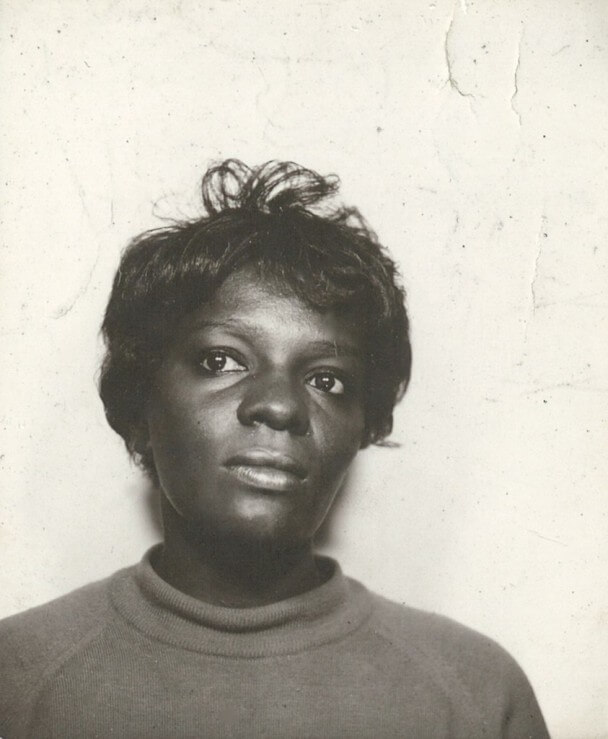
Strong Island
Directed by Yance Ford
Tim Hetherington Award, presented by Dogwoof and the Tim Hetherington Trust.
Set in the suburbs of the black middle class, Strong Island seeks to uncover how—in the year of the Rodney King trial and the Los Angeles riots—the murder of the filmmaker’s older brother went unpunished. The film is an unflinching look at homicide, racial injustice, and the corrosive impact of grief over time.
Called a “brave, revealing film” and a “stylish and wrenching rumination on familial grief” by the New York Times, Strong Island was one of six films considered for the Tim Hetherington award which recognizes films and filmmakers for reflecting journalist Tim Hetherington’s legacy. It is streaming now on Netflix.
Congratulations Yance!

Unrest and Unrest (VR)
Directed by Jennifer Brea
Illuminate Award supported by Welcome; Alternate Realities VR Award.
Unrest tells the story of Jennifer by Jennifer, a Harvard Ph.D. student, who was signing a check at a restaurant when she found she could not write her own name. Months before her wedding, she became progressively more ill, losing the ability even to sit in a wheelchair. When doctors insisted that her condition was psychosomatic, she picked up her camera to document her own story and the stories of four other patients struggling with the world’s most prevalent orphaned disease.
Unrest (VR) is the virtual reality project based on the Chicken & Egg-supported documentary. Tiffany Pritchard from Filmmaker Magazine writes, “Unrest (VR) is a 10-minute immersive experience that takes place from a bed, where I lay down and, with an Oculus Rift, experienced what it’s like to be confined to a room with the debilitating illness ME (myalgic encephalomyelitis). Through a nod of my head, I was navigated through insightful experiences that provided scientific inner workings of our brains.”
Congratulations to Jennifer for her two wins!
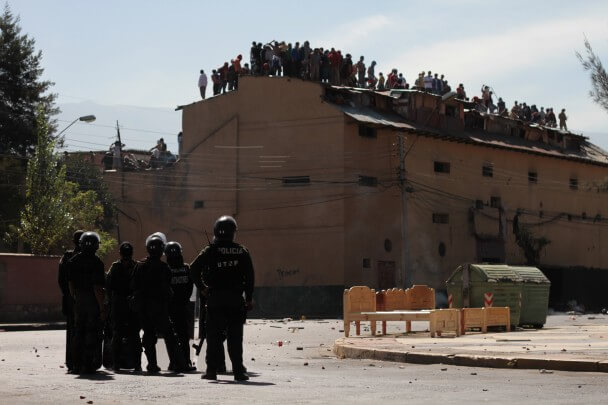
The Fight
Directed by Violeta Ayala and Daniel Fallshaw
Doc/Dispatch Prize supported by Deutsche Welle.
The Fight is a short documentary, produced by The Guardian, which tells the story of disabled people in Bolivia fighting for their rights by journeying across the Andes to La Paz, where they are met with violence by police.
Violeta’s Nest-supported film, Cocaine Prison, documents the inside of one of Bolivia’s most notorious prisons, telling the story of a cocaine worker fighting for freedom, a drug mule who dreams of being a drug boss, and his younger sister, to reveal the country’s relationship with cocaine. Cocaine Prison bridges the ever-widening gap between the North and the South and brings a new perspective to the War on Drugs as it is waged in the Andes.
Congratulations Violeta!
*Chicken & Egg Pictures did not support Unrest (VR) or The Fight directly, but did support both Jennifer and Violeta in their feature-length films. Jennifer Brea received a grant for Unreal, and Violeta Ayala received a grant for Cocaine Prison.
Post by Morgan Hulquist, Summer 2017 Chicken & Egg Pictures Communications Intern
The Nest at Sheffield Doc/Fest, June 9-14, 2017
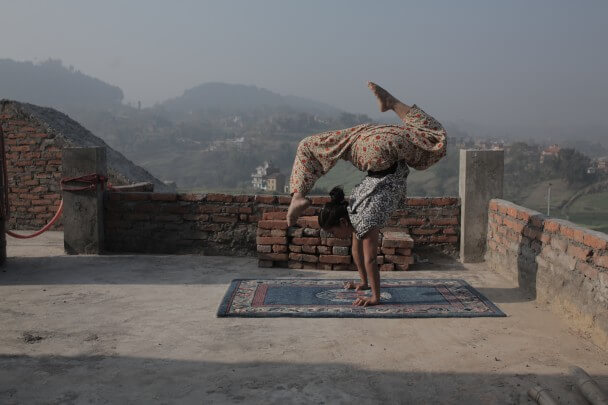
Congratulations to all Nest-supported filmmakers at Sheffield Doc/Fest this year! Our programs team will be there with the 2017 Accelerator Lab cohort for first- and second-time filmmakers so if you’re around, come say hello.
Chicken & Egg Pictures-supported films and filmmakers at 2017 Sheffield:
- World Premiere: Armed With Faith, directed by Asad Faruqi and Geeta Gandbhir*
- UK Premiere: Do Donkeys Act?, directed by David Redmon and Ashley Sabin*
- World Premiere: Even When I Fall, directed by Kate McLarnon and Sky Neal
- World Premiere: Insha’Allah Democracy, directed by Mohammed Naqvi*
- UK Premiere: Motherland, directed by Ramona S. Diaz
- UK Premiere: Strong Island, directed by Yance Ford
- European Premiere: The Departure, directed by Lana Wilson
- UK Premiere: Unrest, directed by Jennifer Brea
- European Premiere: Whose Streets?, directed by Sabaah Folayan and co-directed by Damon Davis
*Chicken & Egg pictures did not support Armed With Faith, Do Donkeys Act?, and Insha’Allah Democracy, but did support Geeta Gandhbir for A Journey of a Thousand Miles: Peacekeepers, Love the Sinner, and A Conversation with Police on Race (NY Times Op-Doc); Ashley Sabin for Girl Model; and Mohammed Maqvi’s film Among the Believers. And, as a 2017 Breakthrough Filmmaker Award recipient, Geeta has received support from Chicken & Egg Pictures in the forms of a $50,000 unrestricted grant, individualized mentorship, and creative and professional workshops.
Go to the Sheffield Doc/Fest website for more information and the full lineup.
In New York instead? Check out Nest-supported films and filmmakers at the Human Rights Watch Film Festival (June 9-18).
Chicken & Egg Pictures Filmmakers at Human Rights Watch Film Festival June 9-18, NYC
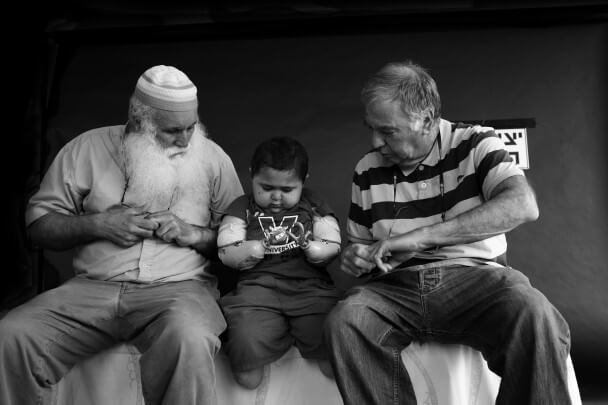
The Human Rights Watch Film Festival is rolling into New York City again this June, and we can’t wait to see our filmmakers in action there! Each screening is followed by a discussion.
Go to the HRW Film Festival website for more information and the full lineup:
MUHI – Generally Temporary
Directed by Rina Castelnuovo-Hollander and Tamir Elterman
For the past seven years, Muhi, a young boy from Gaza, has been trapped in an Israeli hospital. Rushed there in his infancy with a life-threatening immune disorder, he and his doting grandfather, Abu Naim, wound up caught in an immigration limbo that made it impossible for them to leave. With Muhi’s citizenship unclear, and Abu Naim denied a work permit or visa, the pair reside solely within the constraints of the hospital walls. Caught between two states in perpetual war, Muhi is being cared for by the very same people whose government forbids his family to visit, and for him or his grandfather to travel back. Made by two filmmakers from Jerusalem, this documentary lays out the Israeli-Palestinian conflict in human terms, documenting the impact these paradoxical circumstances have on individual lives.
Directed by Tiffany Hsiung
Grandma Gil in South Korea, Grandma Cao in China, and Grandma Adela in the Philippines were amongst thousands of girls and young women who were sexually exploited by the Imperial Japanese Army during World War II, many through kidnapping, coercion and sexual slavery. Some 70 years after their imprisonment, and after decades living in silence and shame about their past, the wounds are still fresh for these three former ‘comfort women’. Despite multiple formal apologies from the Japanese government issued since the early 1990’s, there has been little justice; the courageous resolve of these women moves them to fight and seize their last chance to share first-hand accounts of the truth with their families and the world, and to ensure that this horrific chapter of history is neither repeated nor forgotten.
June 11, 2017, 8:30 PM / Film Society of Lincoln Center’s Walter Reade Theater
Screening followed by discussion with filmmaker Tiffany Hsiung and Sarah Taylor, Advocate, Women’s Rights division, Human Rights Watch
Complicit
Directed by Heather White and Lynn Zhang*
Shot below the radar, Complicit follows the journey of Chinese factory migrant worker-turned-activist Yi Yeting, who takes his fight against the global electronic industry from his hospital bed to the international stage. While battling his own work-induced leukemia, Yi Yeting teaches himself labour law in order to prepare a legal challenge against his former employers. But the struggle to defend the lives of millions of Chinese people from becoming terminally ill due to working conditions necessitates confrontation with some of the world’s largest brands including Apple and Samsung. Unfortunately, neither powerful businesses nor the government are willing to have such scandals exposed.
Chicken & Egg Pictures-Supported Filmmakers Win at Peabody Awards
Three Chicken & Egg Pictures-supported filmmakers accepted Peabody Awards this year. A big congratulations to:
Deborah S. Esquenazi for Southwest of Salem: The Story of the San Antonio Four
Dawn Porter (2017 Breakthrough Filmmaker Award recipient) for Trapped
Nanfu Wang (2017 Accelerator Lab grantee) for Hooligan Sparrow*
Read more about these films and the other recipients in their company on the Peabody website.
*Chicken & Egg Pictures did not fund the film Hooligan Sparrow, but supports director Nanfu Wang as a 2017 Accelerator Lab grantee. Nanfu has also received the LUNA Chicken & Egg Pictures Award at 2017 SXSW Film Festival (read more here).
Three Chicken & Egg Pictures-Supported Films at the 2017 SF International Film Festival

Chicken & Egg Pictures is proud to support three films being featured at this year’s San Francisco International Film Festival: MUHI – Generally Temporary, directed by Rina Castelnuvo-Hillerma and Tamir Elterman (in competition for the Golden Gate Award for Documentary Feature); Motherland, directed by Ramona Diaz; and Whose Streets?, directed by Sabaah Folyan and co-directed by Damon Davis. Congratulations Rina, Tamir, Ramona, Sabaah, and Damon and good luck to MUHI – Generally Temporary!
For more information about the SF International Film Festival, or the full festival lineup, visit the SFFS website.
MUHI – Generally Temporary
Directed by Rina Castelnuovo-Hollander
and Tamir Elterman
MUHI – Generally Temporary tells the story of Muhammad (Muhi), a Palestinian child from Gaza and the son of a Hamas activist wanted by Israel. As a newborn, Muhi is transferred to Israel for treatment of a life-threatening condition. Months turn into years and Muhi, now six, has lived his whole life in the Israeli hospital, confined for security reasons to its premises with his grandfather. The film explores Muhi’s contradictory world in which he is treated, raised, and saved by his people’s enemy, while his parents remain in Gaza.
Screenings:
April 9, 12:30 p.m. (SFMOMA) / April 12, 6:30 p.m. (BAMPFA) / April 13, 1:00 p.m. (YBCA Screening Room)
To buy tickets, visit the SFFS MUHI – Generally Temporary webpage.
Motherland
Directed by Ramona Diaz
One of the world’s poorest and most populous countries, the Philippines, struggles with reproductive health policy—both in the legislature where laws are in debate, and in a hospital with the busiest maternity ward on the planet.
Screenings:
April 6, 6:00 p.m. (YBCA Screening Room) / April 8, 7:30 p.m. (Roxie Theater)
To buy tickets, visit the SFFS Motherland webpage.
Whose Streets?
Directed by Sabaah Folayan
and co-directed by Damon Davis
A firsthand look at how the murder of one teenage boy became the last straw for a community under siege, Whose Streets? is a story of love, loss, conflict, and ambition. Set in Ferguson, MO, the film follows the journey of everyday people whose lives are intertwined with a burgeoning national movement for black liberation.
Screening:
April 14, 8:00 p.m. (PROXY)
To register for the free screening, visit the SFFS Whose Streets? webpage.

